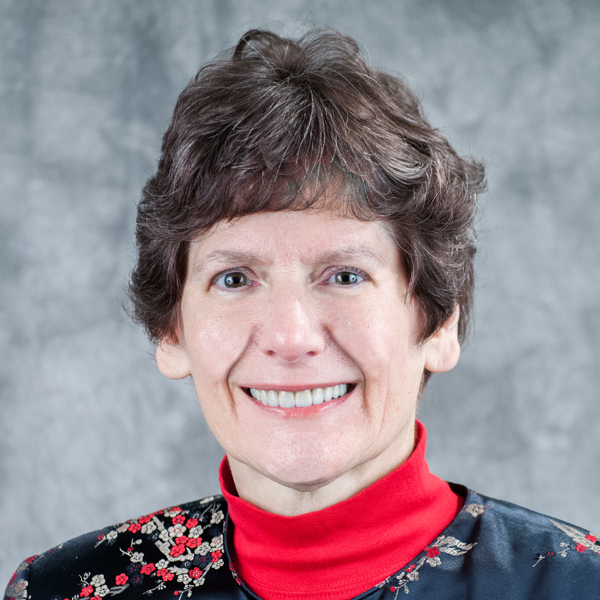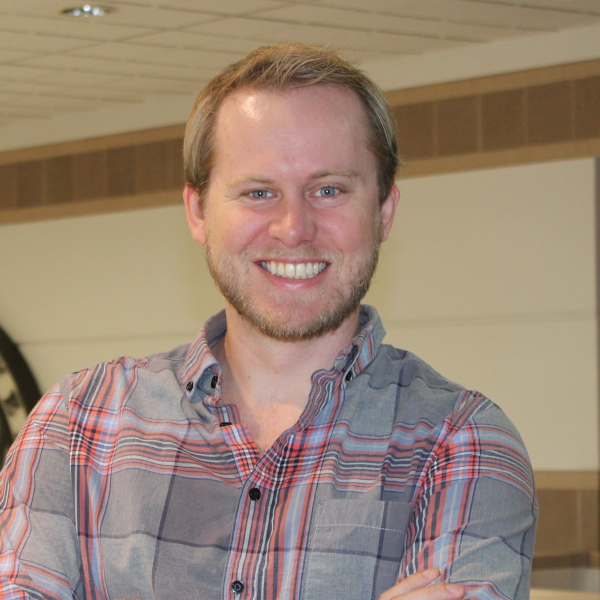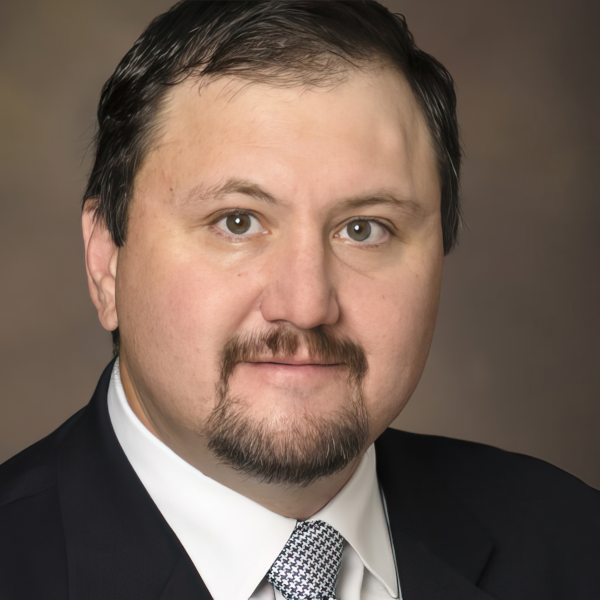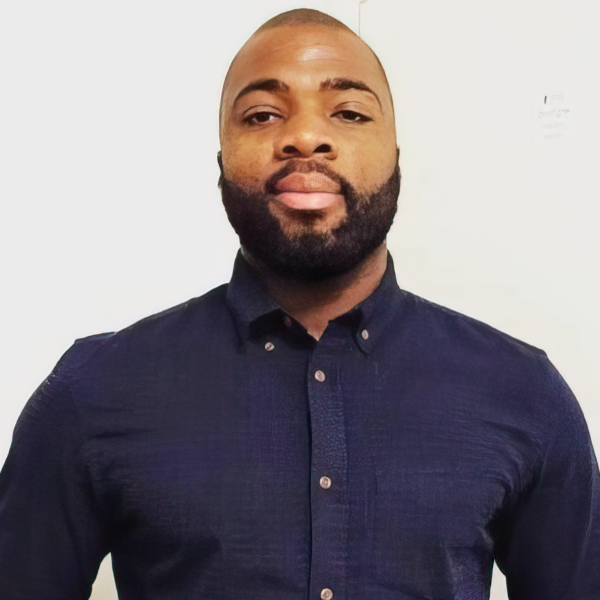Health Equity Innovation Summit
Patient Centric Data Governance and Precision Medicine for All
November 16, 2023
Helix Hall at TMC3
Parking is available in the Collaborative Building Garage, accessed from Lehall Street.
Parking validations will be available at registration.
Registration
Purpose
Precision medicine has become a reality, kind of…
In the last decade, aggregating information about patient genetics and clinical phenotypes across time has transformed treatment of diseases at academic health centers. However, populations who have not participated in clinical trials, biobanks, and academic research remain as a major blind spot to precision health care. Some of the impediments to participation are access-driven (e.g., insurance coverage; data discontinuity among Medicaid populations; physical distances; costs), with patient-institutional dynamics also representing an important factor that has limited participation in clinicogenomics.
This summit explores the potential for emergent technology and new practices to enhance our clinicogenomic knowledgebase of underrepresented populations in clinical research.
Program
| 8:00-9:30 a.m. |
Continental breakfast, networking and poster session |
| 9:30-10:00 a.m. |
Opening remarks and workshop framework Kenneth Ramos, MD, PhD |
| 10:00-10:45 a.m. |
Genomic Data Sharing Technology Panel Moderator: Marcia Ory, PhD, Regents and Distinguished Professor of Environmental and Occupational Health Panelists: Adam Hansen, PhD, CEO, Founder, Geneial Jennifer Hinkel, MS, Managing Director and Chief Growth Officer, The Data Economics Company, Founding Partner Sigla Sciences Rafael Rosengarten, PhD, CEO, Genialis, Founder, Alliance for Artificial Intelligence in Healthcare Synopsis: Enhancing access and health equity through patient centric and federated data management. Topics include technology solutions for Real World Data (RWD) and Real World Evidence (RWE) using genomics data in fiscal planning policy making; the roles of stakeholders (biopharmaceutical industry, government, academia, payers, provider networks); policy prescriptions for increasing data utility and velocity; role of Web 3.0, honest brokers and privacy preserving digital tools. |
| 10:45-11:00 a.m. |
Q&A and open discussion BREAK |
| 11:10-11:20 a.m. |
Texas Medical Center Collaborative Infrastructure and Programs Suzanne Tomlinson, PhD, MBA, Director of Research Programs, Gulf Coast Consortia |
| 11:20-12:20 p.m. |
Innovator Lightning Talks Companies: Geneial, The Data Economics Company (Lydion), Genialis |
| 12:20-1:00 p.m. |
Boxed lunch and networking |
| 1:00-1:45 p.m. |
Genomic Data Governance and Healthcare Access Panel Moderator: Vasaliki Rahimzadeh, PhD, Assistant Professor, Medical Ethics and Health Policy, Baylor College of Medicine Panelists: Junaid Husain, MS, MA, MBA, CEO Greater Houston Healthconnect Keegan Warren JD, LLM, Executive Director, Institute for Healthcare Access, Texas A&M University School of Law and School of Medicine Christophe Tchakoute, PhD, MPH, Senior Data (RWD) Scientist, Genentech Synopsis: Benefits and challenges of data sharing programs for population and individual level data; impediments to RWD and RWE data sharing policy in fiscal planning and policy, provider implementation programs, research, and impact of frictions on access and disparities; new stakeholders and new models of data governance. |
| 1:45-2:30 p.m. |
Q&A and open discussion |
| 2:30-3:30 p.m. |
Drug Discovery & Development and the Variant Calling Dilemma Panel Moderator: Reid Powell, PhD, Texas A&M Health Institute of Bioscience and Technology Panelists: Rodney Hunter, PharmD, BCOP, Clinical Associate Professor Texas Southern University, University of Texas Health Science Center Houston, and Memorial Herman Health Scott Grossman, PhD, AVP, Regulatory Affairs International Merck Dale Miles, PhD, Distinguished Scientist and Senior Director, Genentech Synopsis: Drug safety and efficacy increasingly involve genomic considerations and can determine which drugs get developed for which populations. Clinicogenomic databases have blind-spots derived from disparities in access, clinical trials participation, and other factors that steer investments in programs that can mitigate or amplify disparities. |
| 3:30-4:15 p.m. |
Q&A and open discussion |
| 4:15-4:30 p.m. |
Closing Remarks Rick Silva, PhD, and Kenneth S. Ramos, MD, PhD |
| 4:30-6:00 p.m. |
Networking social |
Speakers
Scott Grossman, PhD
Jennifer Hinkel
 Jennifer Hinkel is the Managing Director and Chief Growth Officer of The Data Economics Company and a Founding Partner of Sigla Sciences. She comes to the data technology sector after two decades in the pharmaceutical and life sciences industry, where her work focused on health economics and market access for cancer and rare disease products. She has held management and executive roles at companies including Caris Life Sciences, Genentech, and National Comprehensive Cancer Network (NCCN). Previously, she was a Senior Partner at McGivney Global Advisors, where she built an oncology-focused consulting practice specializing in market access. She also has an appointment to NASA since 2023 as a Social Scientist specializing in strategic foresight.
Jennifer Hinkel is the Managing Director and Chief Growth Officer of The Data Economics Company and a Founding Partner of Sigla Sciences. She comes to the data technology sector after two decades in the pharmaceutical and life sciences industry, where her work focused on health economics and market access for cancer and rare disease products. She has held management and executive roles at companies including Caris Life Sciences, Genentech, and National Comprehensive Cancer Network (NCCN). Previously, she was a Senior Partner at McGivney Global Advisors, where she built an oncology-focused consulting practice specializing in market access. She also has an appointment to NASA since 2023 as a Social Scientist specializing in strategic foresight.
Ms. Hinkel holds degrees from the Georgia Institute of Technology (BS International Affairs) and the London School of Economics (MSc International Health Policy), and is a part-time doctoral student at the University of Oxford pursuing a DPhil in Evidence Based Health Care. She has lectured in Health Systems and Health Economics at Penn State University and Arcadia University, holds patents in data technologies and digital health, and has published numerous articles and abstracts related to market access and oncology health services research. As a survivor of Stage III Hodgkin Lymphoma, Ms. Hinkel has a special interest in oncology innovation as a cancer survivor. To support the broader survivor and oncology community, Ms. Hinkel founded Resilience Racing, the first all-cancer-survivor sailing team, and also launched the 40 Under 40 in Cancer annual awards program.
Rodney J. Hunter, PharmD, BCOP
 Rodney Hunter is a Clinical Associate Professor at Texas Southern University College of Pharmacy and Health Sciences in Houston. He is also Clinical Assistant Professor at The University of Texas Health Science Center at Houston McGovern Medical School and Clinical Pharmacy Specialist at UT Health/Memorial Hermann Cancer Center in Houston. Dr. Hunter received his Doctor of Pharmacy degree from Texas Southern University, followed by a fellowship in Oncology at The University of Texas MD Anderson Cancer Center in Houston. He is a board-certified Oncology Pharmacist.
Rodney Hunter is a Clinical Associate Professor at Texas Southern University College of Pharmacy and Health Sciences in Houston. He is also Clinical Assistant Professor at The University of Texas Health Science Center at Houston McGovern Medical School and Clinical Pharmacy Specialist at UT Health/Memorial Hermann Cancer Center in Houston. Dr. Hunter received his Doctor of Pharmacy degree from Texas Southern University, followed by a fellowship in Oncology at The University of Texas MD Anderson Cancer Center in Houston. He is a board-certified Oncology Pharmacist.
Dr. Hunter is the Program Director of the T.L. Burks Breast Cancer Outreach Center and serves as an advisory board member for the Texas Southern University Breast Cancer Screening and Prevention Center which is funded by the Cancer Prevention and Research Institute of Texas. Dr. Hunter is the Principal Investigator of the Artificial Intelligence/Machine Learning Consortium to Advance Health Equity and Research Diversity in Cancer at TSU in collaboration with University of Texas Medical Branch. His clinical interests include breast cancer, pharmacogenomics, and healthcare disparities, and chemotherapy dosing in special populations. His work has been published in such journals as Pharmacotherapy and the Journal of Cancer Therapy.
Junaid Husain
 Junaid Husain is a 25-year health care executive with experience across hospital systems, health care services, digital health, medical technology, pharmaceuticals and biotechnology. His career includes leadership roles in management, finance, operations, business development, and consulting.
Junaid Husain is a 25-year health care executive with experience across hospital systems, health care services, digital health, medical technology, pharmaceuticals and biotechnology. His career includes leadership roles in management, finance, operations, business development, and consulting.
As Chief Executive Officer of Greater Houston Healthconnect—the health information exchange for Southeast Texas—Mr. Husain has built partnerships across hundreds of hospitals, health systems, academic medical centers, health plans, and ambulatory practices. Under his leadership, Healthconnect has seen extraordinary growth, quintupling the size of its clinical data repository, tripling revenues, and expanding its suite of digital health solutions—becoming one of the largest and fastest growing HIEs in the nation.
A versatile health care leader, Mr. Husain comes with a broad professional background. A veteran Wall Street health care executive, he has provided advisory services on billion-dollar technology investments. As Management Consultant to Fortune 500 pharmaceutical and biotechnology companies, he has advised C-suite executives on corporate and financial strategy. And finally, as an innovation enthusiast, he has founded three companies and serves as Advisor to several health-tech startups.
Dale Miles, PhD
 Dale Miles is a Distinguished Scientist and Senior Director at Genentech within the Clinical Pharmacology department, with over 25 years of drug development experience. His group includes 10 PhD scientists who provide clinical pharmacology expertise to guide a broad portfolio in oncology, including T-cell therapy, cancer immunotherapy, and signaling assets in both heme and solid tumors, and including large molecules, small molecules, and antibody-drug conjugates. Dale is a recognized external scientific leader with over 55 peer reviewed publications in the fields of clinical pharmacology, bioanalytical, and drug metabolism, and has been an invited speaker at external scientific conferences. He has a wide range of demonstrated drug development and regulatory experience, including leading the clinical pharmacology and nonclinical components of multiple successful BLA and NDA filings leading to approval.
Dale Miles is a Distinguished Scientist and Senior Director at Genentech within the Clinical Pharmacology department, with over 25 years of drug development experience. His group includes 10 PhD scientists who provide clinical pharmacology expertise to guide a broad portfolio in oncology, including T-cell therapy, cancer immunotherapy, and signaling assets in both heme and solid tumors, and including large molecules, small molecules, and antibody-drug conjugates. Dale is a recognized external scientific leader with over 55 peer reviewed publications in the fields of clinical pharmacology, bioanalytical, and drug metabolism, and has been an invited speaker at external scientific conferences. He has a wide range of demonstrated drug development and regulatory experience, including leading the clinical pharmacology and nonclinical components of multiple successful BLA and NDA filings leading to approval.
Marcia G. Ory, PhD, MPH
 Marcia Ory is an accomplished social scientist and public health researcher noted for her research productivity and scientific contributions in aging and public health. Dr. Ory is an international leader in the translation of research to practice through investigations of behavioral, social, environmental, policy, and/or technological solutions to enhance health and quality of life for all.
Marcia Ory is an accomplished social scientist and public health researcher noted for her research productivity and scientific contributions in aging and public health. Dr. Ory is an international leader in the translation of research to practice through investigations of behavioral, social, environmental, policy, and/or technological solutions to enhance health and quality of life for all.
Before coming to Texas A&M University in 2001, Dr. Ory spent twenty years in federal service as Chief of Social Science Research on Aging in the Behavioral and Social Research Program, the National Institute on Aging, National Institutes of Health. She holds a doctorate from Purdue University and a Master of Public Health and a Post-Doctoral Fellowship from The Johns Hopkins University. She has been the author of more than 500 publications on a variety of topics including lifestyle behaviors and social determinants of health, falls and injury prevention; doctor-patient interactions; chronic disease management; dementia care; opioid crisis and COVID-19 pandemic; and translational research.
With broad research expertise, she has been a primary investigator on multiple local, state, and federally funded grants to implement and evaluate evidence-based interventions for promoting healthy lifestyle changes in midlife and older ages. Drawing upon a life-course perspective, her research has examined how evidence-based programs for individuals at different life transitions can be translated to clinical, community, or workplace settings through transformational partnerships. Reflecting her passion for achieving health equity, she chaired the first two Texas A&M Health Equity Innovation Summits sponsored by Genentech. She was lead author of the Summit Report “Health Equity Innovation in Precision Medicine: Current Challenges and Future Directions.” Published in Front Public Health. 2023; 11. DOI: 10.3389/fpubh.2023.1119736.
Reid Powell, PhD
 Dr. Powell is the chief data scientist and bioinformatician between two CPRIT funded core facilities, the Gulf Coast Consortia’s (GCC) Combinatorial Drug Discovery Program and the GCC High Throughput Flow Cytometry Program, which both recently relocated to the Texas A&M TMC3-Helix Park Collaborative Research Building. Throughout his career Dr. Powell has been interested in the enabling capabilities of machine learning and artificial intelligence in biomedical research ecosystems. Early efforts in this space included the development of pipelines to predict disease severity and response from clinical H&E images. He has since taken these concepts and applied them to high-throughput and high-content analysis of phenotypic drug screens, which have supported multiple pre-clinical drug discovery and repurposing efforts. Dr. Powell also has research interest in leveraging machine learning and artificial intelligence-based technologies to deconvolve therapeutic mechanisms of action and predict therapeutic response using integrative multi-omics analysis.
Dr. Powell is the chief data scientist and bioinformatician between two CPRIT funded core facilities, the Gulf Coast Consortia’s (GCC) Combinatorial Drug Discovery Program and the GCC High Throughput Flow Cytometry Program, which both recently relocated to the Texas A&M TMC3-Helix Park Collaborative Research Building. Throughout his career Dr. Powell has been interested in the enabling capabilities of machine learning and artificial intelligence in biomedical research ecosystems. Early efforts in this space included the development of pipelines to predict disease severity and response from clinical H&E images. He has since taken these concepts and applied them to high-throughput and high-content analysis of phenotypic drug screens, which have supported multiple pre-clinical drug discovery and repurposing efforts. Dr. Powell also has research interest in leveraging machine learning and artificial intelligence-based technologies to deconvolve therapeutic mechanisms of action and predict therapeutic response using integrative multi-omics analysis.
Vasiliki Rahimzadeh, PhD
 Dr. Rahimzadeh is an Assistant Professor in the Center for Medical Ethics and Health Policy. She investigates the ethical, legal, and social issues of health data sharing across emerging computing environments. The goals of her NIH-funded research program are to inform data governance policy and practice which maximizes the scientific value of health data and respects the rights and interest of individuals and communities. Dr. Rahimzadeh is also an active member of the Global Alliance for Genomics and Health, where she contributes to the development of global policy for responsible genomic data sharing.
Dr. Rahimzadeh is an Assistant Professor in the Center for Medical Ethics and Health Policy. She investigates the ethical, legal, and social issues of health data sharing across emerging computing environments. The goals of her NIH-funded research program are to inform data governance policy and practice which maximizes the scientific value of health data and respects the rights and interest of individuals and communities. Dr. Rahimzadeh is also an active member of the Global Alliance for Genomics and Health, where she contributes to the development of global policy for responsible genomic data sharing.
Dr. Rahimzadeh received her undergraduate degree in microbial biology from the University of California Berkeley, She earned her MSc and PhD degrees in biomedical ethics from McGill University followed by a postdoctoral fellowship at Stanford University with support from a National Human Genome Research Institute Ethical Legal and Social Implications Program training grant.
Kenneth S. Ramos, MD, PhD
 Dr. Ramos is an accomplished physician-scientist with designations in the National Academy of Medicine and National Academy of Sciences. He is a transformational leader recognized throughout the world for his scientific contributions in the areas of genomics, precision medicine and toxicology.
Dr. Ramos is an accomplished physician-scientist with designations in the National Academy of Medicine and National Academy of Sciences. He is a transformational leader recognized throughout the world for his scientific contributions in the areas of genomics, precision medicine and toxicology.
With formal training in pharmaceutical sciences, chemistry, biochemistry, pharmacology, and medicine, Dr. Ramos is helping to steer the changing landscape of medicine, biotechnology and healthcare. In this context, he leads several translational, clinical research, and educational programs that integrate diverse approaches to elucidate genomic mechanisms of disease and to develop novel therapies for several oncologic, pulmonary, and vascular diseases.
Dr. Ramos has provided academic, executive, administrative, and scientific leadership in the areas of genetics and genomic medicine and toxicology at various academic institutions and over the course of his career has positively influenced the career of numerous clinicians and scientists engaged in medical, veterinary and pharmaceutical practice. He is deeply committed to initiatives that advance modern technological applications to improve quality of healthcare and reduce disease burden and health-associated costs.
Rafael Rosengarten, PhD
 Rafael Rosengarten, CEO of Genialis, leads the company’s effort to deliver the next generation of clinical biomarkers to help the right patient get the right treatment at the right time. He spent nearly 20 years in biomedical research prior to Genialis, publishing in the fields of evolution, immunology, bioengineering and genetics. Dr. Rosengarten is also a board member and co-founder of the Alliance for AI in Healthcare (AAIH). Rafael attended Dartmouth College and then Yale University, where he was an NSF Graduate Research Fellow. He went on to postdoctoral training in Jay Keasling’s synthetic biology group at Lawrence Berkeley National Laboratory, Joint BioEnergy Institute (JBEI), where he co-invented the j5 DNA assembly design automation tool (which has since been commercialized by TeselaGen Biotechnology). This was followed by a National Library of Medicine fellowship in Biomedical Informatics at Baylor College of Medicine. In his free time, Rafael enjoys cooking, climbing mountains, and exploring the world with his wife and two precocious children.
Rafael Rosengarten, CEO of Genialis, leads the company’s effort to deliver the next generation of clinical biomarkers to help the right patient get the right treatment at the right time. He spent nearly 20 years in biomedical research prior to Genialis, publishing in the fields of evolution, immunology, bioengineering and genetics. Dr. Rosengarten is also a board member and co-founder of the Alliance for AI in Healthcare (AAIH). Rafael attended Dartmouth College and then Yale University, where he was an NSF Graduate Research Fellow. He went on to postdoctoral training in Jay Keasling’s synthetic biology group at Lawrence Berkeley National Laboratory, Joint BioEnergy Institute (JBEI), where he co-invented the j5 DNA assembly design automation tool (which has since been commercialized by TeselaGen Biotechnology). This was followed by a National Library of Medicine fellowship in Biomedical Informatics at Baylor College of Medicine. In his free time, Rafael enjoys cooking, climbing mountains, and exploring the world with his wife and two precocious children.
Rick Silva, PhD
 Dr. Rick Silva joined the Texas A&M in 2019 to develop an external-facing collaborations program to augment the clinical and economic impact of the research enterprise at the Texas A&M Health Sciences Center. He has successfully led over 300 transactions with academic, nonprofit, and commercial organizations in the US, Europe, and Asia, ranging from start-ups to Fortune 500® companies including the creation of 60 biomedical startup companies.
Dr. Rick Silva joined the Texas A&M in 2019 to develop an external-facing collaborations program to augment the clinical and economic impact of the research enterprise at the Texas A&M Health Sciences Center. He has successfully led over 300 transactions with academic, nonprofit, and commercial organizations in the US, Europe, and Asia, ranging from start-ups to Fortune 500® companies including the creation of 60 biomedical startup companies.
Prior to Texas A&M, he spent 5 years at University of Arizona’s academic medical center in a similar role spanning the implementation of Banner Health’s academic affiliation with University of Arizona and assuming operation of their hospitals and practice plan. Previously, in 15 years at the University of Colorado, he had diverse roles in developing and leading a variety of collaborations including licensing transactions, technology development partnerships, public-private partnerships, multiparty collaborations, clinical trials, biomarker validation projects, supply and distribution agreements, strategic alliances, and a major emphasis on new venture development.
He holds an academic appointment in Texas A&M’s Institute for Biosciences and Technology in the Texas Medical Center where he has led implementation of a pharmacogenomic clinical practice and registry that utilizes several artificial intelligence technologies for clinical decision support. He publishes and speaks on emergent collaboration models at the academic industry interface.
Dr. Silva is passionate about strategies for achieving organizational effectiveness at the academic medical center- industry interface.
He received a Bachelor of Science degree in Agriculture from New Mexico State University, a Doctor of Philosophy in Physiology from Colorado State University, and a Master of Business Administration emphasizing Entrepreneurship and Finance from the University of Colorado-Boulder Leeds School of Business and is Certified Licensing Professional.
Christophe Tchakoute, PhD, MPH
 Christophe Tchakoute is a senior real world data scientist in Product Development Data Sciences at Genentech. Christophe currently contributes his expertise to different disease areas such as: Non-small cell lung cancer, breast cancer and infectious diseases. In addition, Christophe also spends a portion of his time developing novel statistical methods leveraging real world data to design more representative clinical trials. He Holds an MPH from Columbia University and a PhD in epidemiology from Stanford University.
Christophe Tchakoute is a senior real world data scientist in Product Development Data Sciences at Genentech. Christophe currently contributes his expertise to different disease areas such as: Non-small cell lung cancer, breast cancer and infectious diseases. In addition, Christophe also spends a portion of his time developing novel statistical methods leveraging real world data to design more representative clinical trials. He Holds an MPH from Columbia University and a PhD in epidemiology from Stanford University.
Suzanne Tomlinson, PhD, MBA
 Dr. Suzanne Tomlinson is the Director of Research Programs for the Gulf Coast Consortia. Her primary responsibilities include direction of the 10 GCC research consortia and clusters. In addition, she directs the development of new inter-institutional research initiatives, scientific conferences, grant proposals, curriculum, and manages the John S. Dunn Foundation Collaborative Research Award Program for the BioScience Research Collaborative. In addition, she directs the award winning Rigor and Reproducibility Workshops and is the Co-PI of the Cancer Therapeutics Program. She earned her PhD at the University of Texas Medical Branch (UTMB), Galveston, TX, in Biochemistry and Molecular Biology, specializing in computational drug discovery and lead optimization in the development of West Nile and dengue virus protease inhibitors. As a postdoctoral fellow, she developed aldose reductase inhibitors as potential colon cancer therapeutics. Her current research interests remain in the development of flavivirus antivirals.
Dr. Suzanne Tomlinson is the Director of Research Programs for the Gulf Coast Consortia. Her primary responsibilities include direction of the 10 GCC research consortia and clusters. In addition, she directs the development of new inter-institutional research initiatives, scientific conferences, grant proposals, curriculum, and manages the John S. Dunn Foundation Collaborative Research Award Program for the BioScience Research Collaborative. In addition, she directs the award winning Rigor and Reproducibility Workshops and is the Co-PI of the Cancer Therapeutics Program. She earned her PhD at the University of Texas Medical Branch (UTMB), Galveston, TX, in Biochemistry and Molecular Biology, specializing in computational drug discovery and lead optimization in the development of West Nile and dengue virus protease inhibitors. As a postdoctoral fellow, she developed aldose reductase inhibitors as potential colon cancer therapeutics. Her current research interests remain in the development of flavivirus antivirals.Keegan Warren, JD, LLM
 Keegan Warren is the Executive Director of the (pending) Institute on Healthcare Access. She brings lived experience and a civil justice lens to bear on health and wellness, specializing in non-medical cost drivers and health equity. An attorney and Federally Qualified Health Center director with nearly two decades of senior management experience spanning health and human services, she is a national expert on integrating medical and social services through medical-legal partnership, a care delivery model that leverages legal expertise to advance individual and population health.
Keegan Warren is the Executive Director of the (pending) Institute on Healthcare Access. She brings lived experience and a civil justice lens to bear on health and wellness, specializing in non-medical cost drivers and health equity. An attorney and Federally Qualified Health Center director with nearly two decades of senior management experience spanning health and human services, she is a national expert on integrating medical and social services through medical-legal partnership, a care delivery model that leverages legal expertise to advance individual and population health.
Warren’s research and writing focuses on integration of non-medical drivers of health, including identifying institutional policies that may be inadvertently worsening disparities and raising costs. She has significant experience helping stakeholders navigate confidentiality and privacy to facilitate patient-centered data-sharing across sectors. Her expertise includes policy surveillance on targeted access issues, with recent focus on treating opioid use disorder in carceral settings.
Warren is a veteran of the Army National Guard and a member of the Order of St. Joan of Arc, the highest civilian award given by the U.S. Armor and Cavalry Associations. She served on the National Academy of Medicine’s (NAM) Committee on Integrating Social Care, was an NAM Emerging Leader in Health and Medicine Scholar, and is currently serving a three-year term on the NAM Board on Health Care Services. She is a former adjunct professor at the University of Texas at Austin School of Law and McCombs School of Business, and a lecturer at its School of Design and Creative Technologies.
Warren earned her Master of Laws in Health Law and Policy from Southern Illinois University, her Doctor of Jurisprudence from the University of Texas at Austin, and her Bachelor of Arts in Spanish, international relations, and Latin American studies from the University of Arkansas.
In her spare time, she hangs out with her undergraduate twin daughters and her fiancé, Patrick, and she rows crew competitively.
Stakeholder value proposition
Building virtual RWD cohorts for preliminary data, to conduct in silico translational experiments to explore pathways, targets, and mechanisms hypothesized to be tractable with precision medicine approaches can address disparities.1 This symposium is a step toward a collaborative clinical data ecosystem in Texas, modeled after the ORIEN/Total Cancer Care protocol (NCT03977402; Moffitt and James Cancer Centers), to drive emerging best practices in federated data governance and power an idealized model of clinicogenomic translational research that addresses disparities in genomic mediicne.2 Such a community of practice can enable researchers in the genomic health community, to collaborate with lower frictions, increase the velocity of deidentified case data exchange, and accrue clinical cases, genotyping data, and outcome data across organizational boundaries in service to better care. These efforts emphasize increasing the representation of underserved populations in clinicogenomic based databases and care through patient centric data governance and development of data models that are representative of diverse populations.3
- Silva PS, NK; Sweitzer, NK. Chimeric Cohorts And Consortia Can Power And Scale Precision Medicine. In: Ramos KS, editor. Comprehensive Presicion Medicine. London, UK: Elsevier; 2023.
- Silva P, Dahlke DV, Smith ML, Charles W, Gomez J, Ory MG, Ramos KS. An Idealized Clinicogenomic Registry to Engage Underrepresented Populations Using Innovative Technology. J Pers Med. 2022;12(5). Epub 20220429. doi: 10.3390/jpm12050713. PubMed PMID: 35629136; PMCID: PMC9144063.
- Ory MG, Adepoju OE, Ramos KS, Silva PS, Vollmer Dahlke D. Health equity innovation in precision medicine: Current challenges and future directions. Frontiers in public health. 2023;11:1119736-. doi: 10.3389/fpubh.2023.1119736. PubMed PMID: 36875406.

